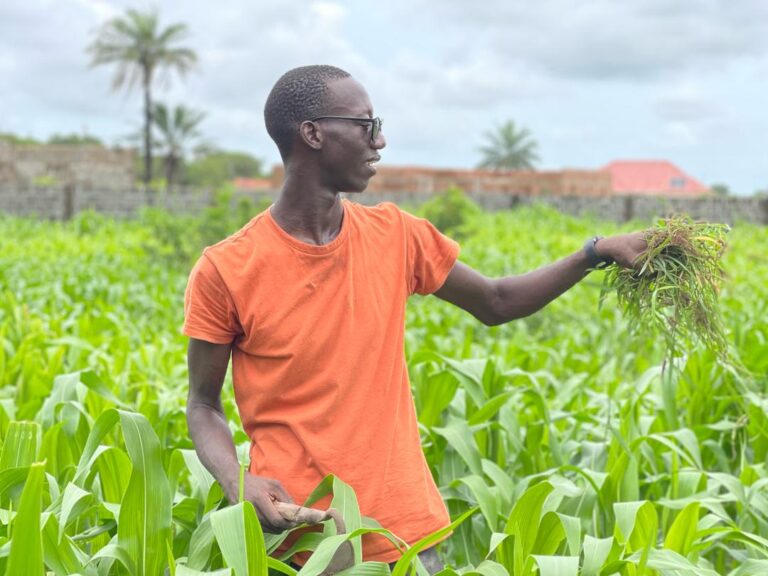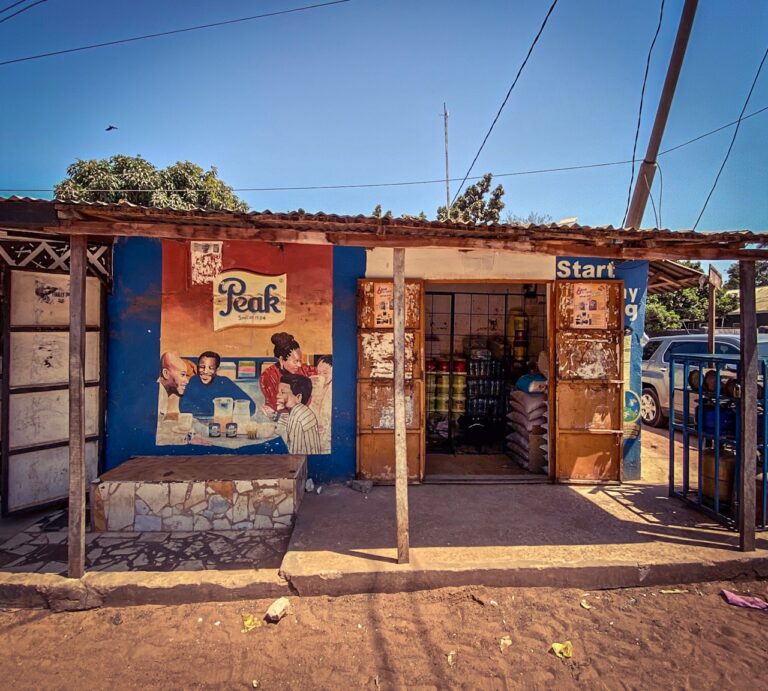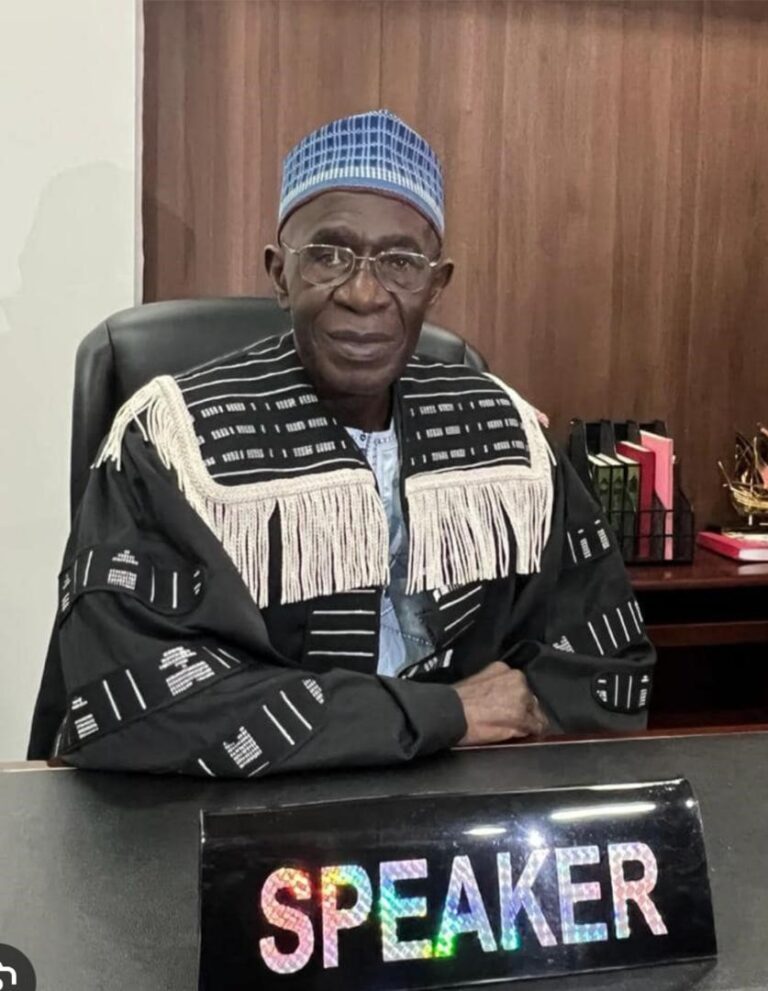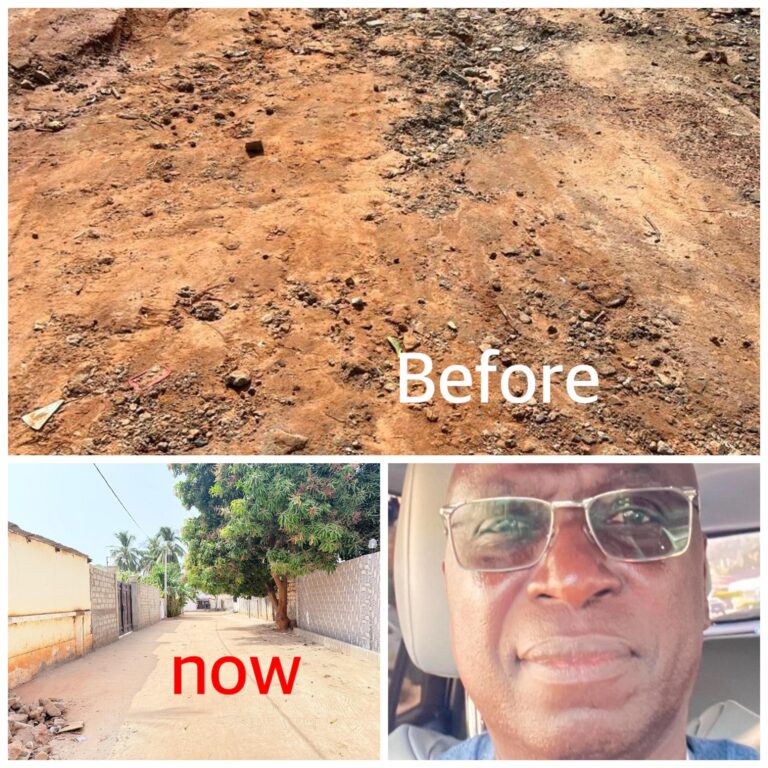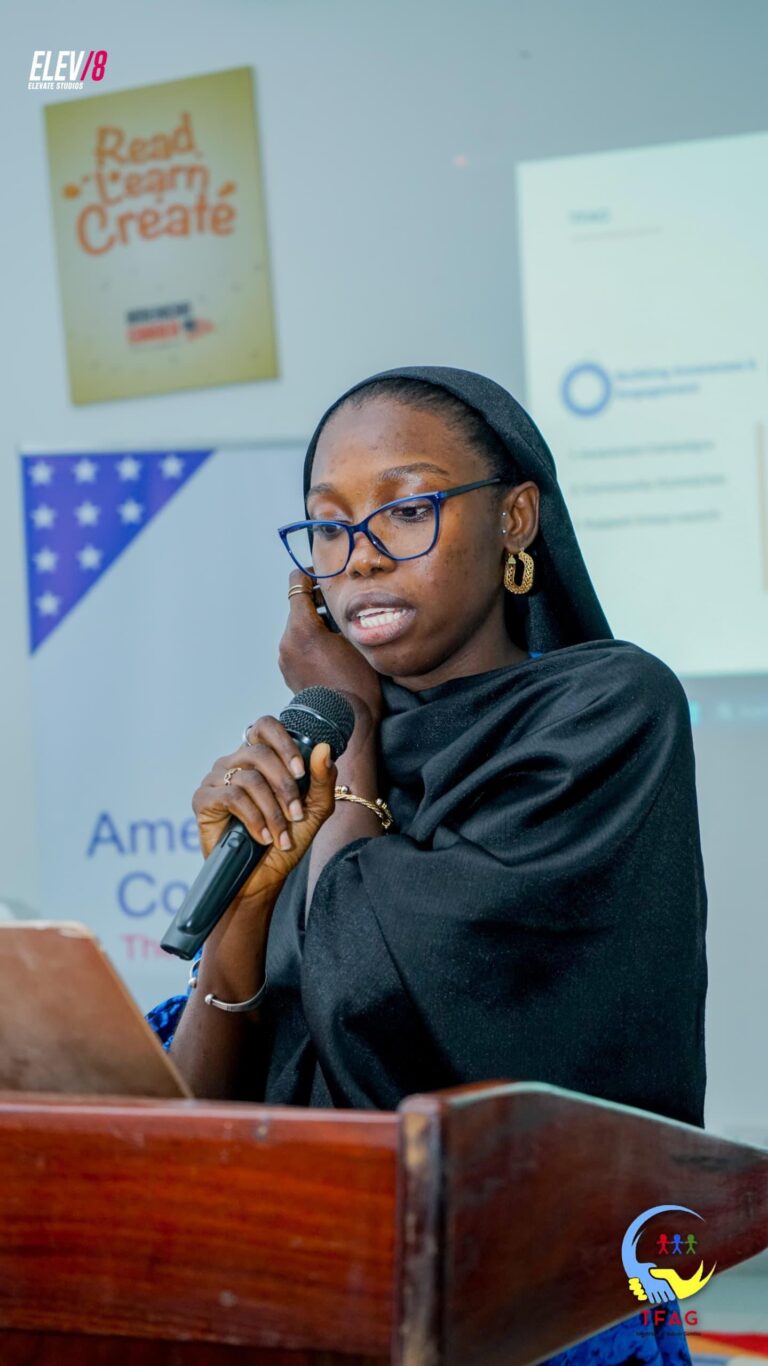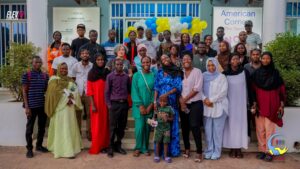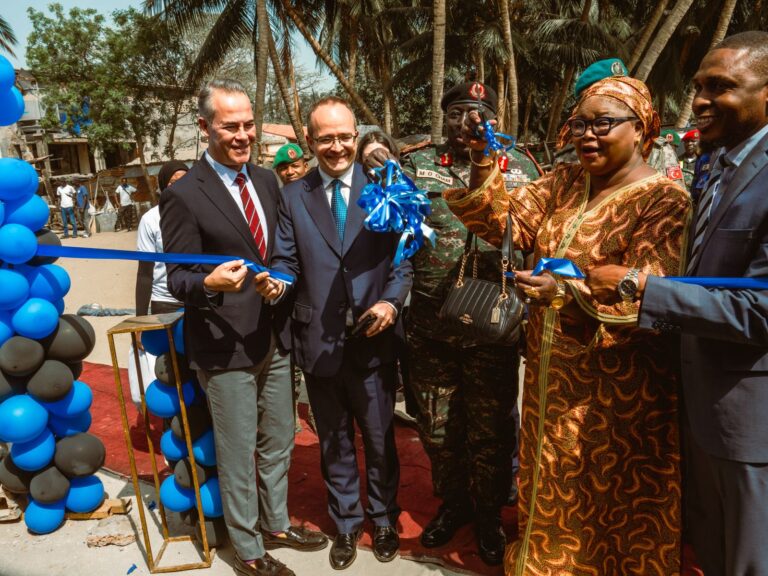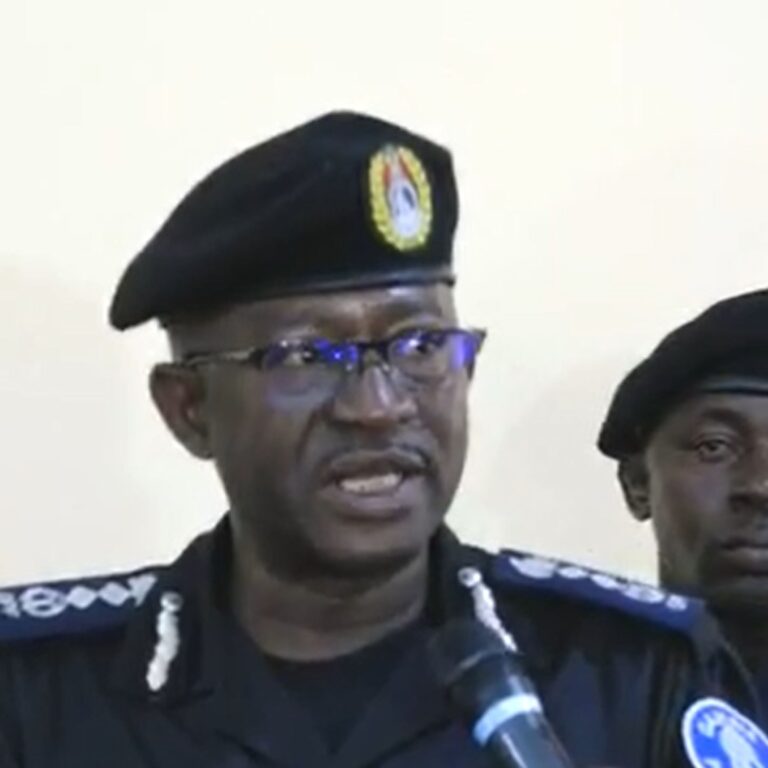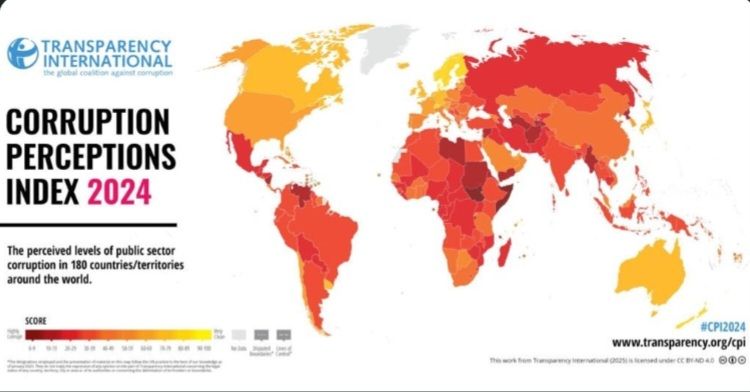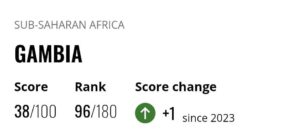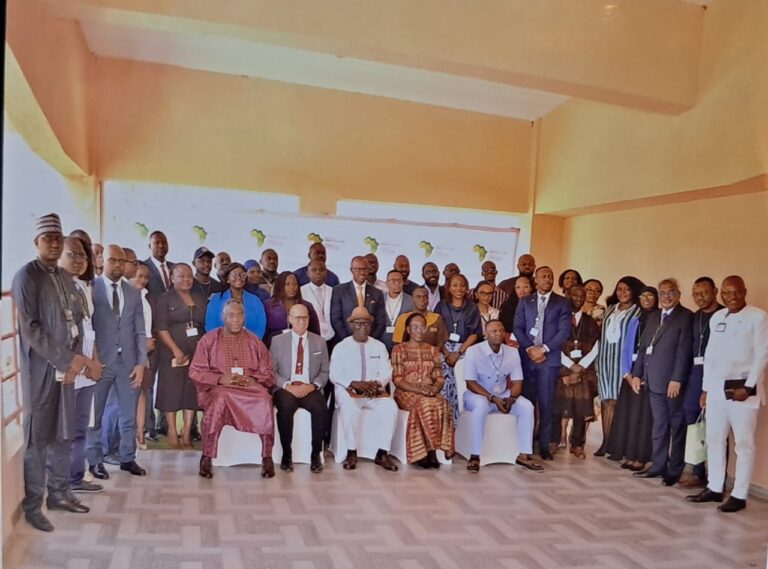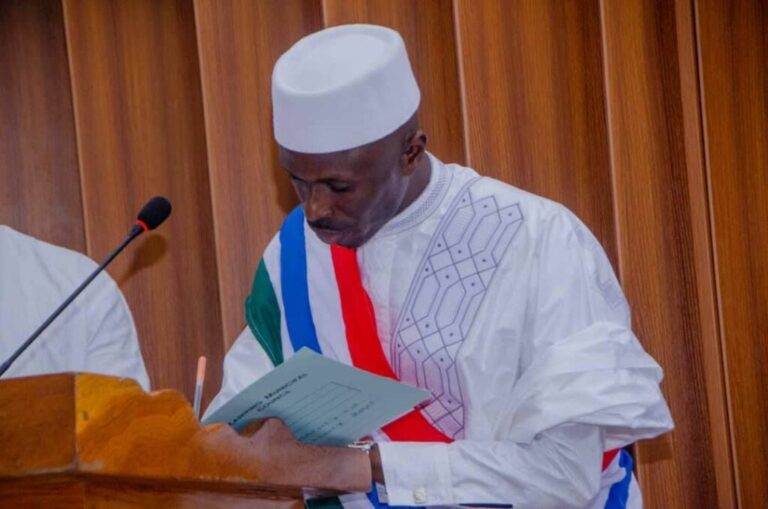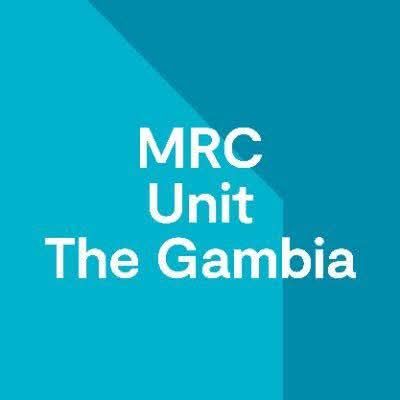By: Alieu Jallow
In a commendable act of community development, Sanna Jawneh, a proactive resident of the Pipeline neighborhood, has taken the initiative to construct a feeder road within his street. This endeavor aims to complement the government’s efforts in infrastructure development and alleviate movement challenges faced by residents.
Mr. Jawneh recognized the difficulties caused by inadequate road conditions, especially during the rainy season. Motivated by a desire to improve accessibility and enhance the quality of life for his neighbors, he mobilized personal resources to embark on the construction of the feeder road.
“Since I got the place in 1996, it used to be a waterway, and it caused a whole lot of damage because of the force of the erosion that came with it. It divided the street into two parts, with the middle road where the water would pass. I couldn’t park on the street, and on the other side, it was turned into a dumping site. People would come and throw their trash all over, and during the rainy season, you couldn’t pass. Vehicles couldn’t pass, and there were grasses all over. People fell on the street. So I decided—since I’m here now, I’m back, I’m the owner of the place—I decided to level it to make it accessible for vehicles and pedestrians,” he stated.
Jawneh, who is a retired neuro-sociologist in the U.S., claims to have spent over three hundred thousand dalasis to make the street accessible and motorable. However, he lamented that he has faced numerous challenges, both from the Kanifing Municipal Council and Bakary Manneh, the safety manager at the National Roads Authority, who led the operation to clear the roads. He alleged that both Manneh and the council were acting under the influence of a neighbor to demolish the concrete feeder road he built to make the street accessible.
“I spent over 300 thousand dalasis on this road to get it fixed. But every time I made improvements, they would bring in heavy equipment to demolish the whole street. This has happened multiple times. The last time, I traveled to the U.S. in October or November, and while I was away, they came and demolished the whole road again, bursting and damaging water lines. They then told NAWEC that it was me, the owner of the home, who brought in the grader to demolish the road, which wasn’t true. I’m trying to be a good citizen. I don’t depend on the government to do everything, and I feel that it is the responsibility of citizens to contribute in conjunction with what the government is doing,” he alleged.
Joseph Biyandoma, a middle-aged man, and Elizabeth Coker, an eighty-two-year-old woman, are neighbors of Mr. Jawneh who lamented the challenges they faced over the years, stressing that the road was in extremely bad condition and had turned into a dumping site. They highlighted how his efforts will help ease movement, improve health conditions, and ensure safety.
“I’m happy because, in the past, my fence fell twice. Now the place is okay. After the rains, you couldn’t pass here because of the water,” Elizabeth outlined.
“Mr. Jawneh has done a very good job here because this particular street was in terrible condition. When it rained, you dared not use this end of the road. If you passed here, you would either fall, or vehicles wouldn’t be able to pass. Kids used to fall into the water. It was also a dumping site, and I’m very happy that this is no longer the case,” Joseph applauded.
Feeder roads play a crucial role in connecting communities to main roads and facilitating access to essential services, markets, and educational institutions. The Gambia’s National Transport Policy (2018-2027) emphasizes the importance of such roads, noting that “the poor state of the feeder roads constrains access to economic opportunities and social services for the rural population.”
Speaking to The Fatu Network, Sulayman Janneh Sumareh, Deputy Managing Director General of the National Roads Authority, underscored the authority’s commitment to supporting environmentally vulnerable communities and stated that they have no interest in deterring private citizens from developing their streets. He stressed that Mr. Jawneh was offered numerous technical recommendations to help him achieve his objective of creating a motorable road.
“I personally sent a team of engineers to advise him on what to do and how to do it effectively. If he chooses not to take our advice and proceeds in his own way—I have seen videos of neighbors’ homes inundated because of how he elevated the road without providing any drainage system to direct the water away. He did not create any underground drainage to discharge water outward or connect it to the corresponding street,” Sumareh stated.
Regarding Mr. Jawneh’s claims of being arrested under the directives of the National Roads Authority, Mr. Sumareh acknowledged that the directive came from their office following what they deemed unwelcoming remarks from Mr. Jawneh about leveraging his personal resources to act independently.
“He said, ‘I have my money, and I will spend my money. This is Gambia—if you have money, you can do whatever you want to do.’ That was the reason why we sent the police to arrest him last time when he made that statement. Everything he has been doing is essentially wrong. In this case, we don’t mind providing him with technical assistance—since he wants to spend his money, we are willing to guide him—but we cannot validate or allow him to bully his neighbors just because he feels he has money or lives in the United States. Right is right, and wrong is wrong,” he added.
The Fatu Network tried to reach out to the Kanifing Municipal Council for comments, but our efforts were unsuccessful.
While the government has made strides in infrastructure development, including the reconstruction of urban roads in the Greater Banjul Area, challenges persist. However, community-led initiatives, such as the one undertaken by Sanna Jawneh, are instrumental in bridging these gaps. They not only enhance local infrastructure but also foster a sense of ownership and collective responsibility among residents—an act of civic responsibility that aligns with broader national efforts to improve transportation networks, underscoring the vital role of individual and community participation in nation-building.

